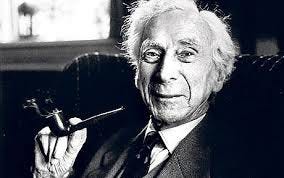An Inquiry into Meaning and Truth (1940), 1969 Pelican ed., pp. 156-157:
I will observe, however, that empiricism, as a theory of knowledge, is self-refuting. For, however it may be formulated, it must involve some general proposition about the dependence of knowledge upon experience; and any such proposition, if true, must have as a consequence that [it] itself cannot be known. While therefore, empiricism may be true, it cannot, if true, be known to be so. This, however, is a large problem.
It is indeed a large problem. Strictly speaking, however, is empiricism self-refuting? A self-refuting proposition is one that entails its own falsehood. *All generalizations are false* is self-refuting in this sense. It is either true or not true (false). (Assume Bivalence) If true, then false. If false, then false. So, necessarily false. Other self-refuting propositions are antinomies: if true, then false; if false, then true. Self-refutation comes in a variety of ‘flavors.’
Let empiricism be the proposition, *All knowledge derives from sense experience.* Clearly, this proposition does not refute itself. For it does not entail its own falsehood. It is not the case that if it is true, then it is false. Rather, if it is true, then it cannot be known to be true. For it is not known by experience, and therefore not knowable if true.
Empiricism, then, is not self-refuting, but self-vitiating, self-weakening. It is in this respect like the thesis of relative relativism (RR): it is relatively true that all truths are relative. (RR) does not refute itself, but it does weaken itself. Presumably, what the relativist really wants to say is something stentorian and unqualified: all truths are relative! But the demands of logical consistency force him to relativize his position.
The real problem is that if empiricism is true, then it cannot be believed with justification. For on empiricism the only justificatory grounds are those supplied by sense experience. It is also quite clear that empiricism is not a formal-logical truth or an analytic truth. A logical positivist would have to say it is cognitively meaningless. But we shouldn't go that far. It plainly enjoys cognitive meaning.
You might say that empiricism is just a linguistic proposal, a non-binding suggestion as to how we might use words. Equivalently, one might say it is just a stance one might adopt. If you tell me that, then I will thank you for 'sharing,' but then politely voice my preference for either a non-empirical stance or a stance that is not a mere stance, but the blunt asseveration that empiricism is false. After all, I know that kindness is to be preferred over cruelty, ceteris paribus, and I know this by a non-empirical value intuition.
Another wrinkle is this. If all knowledge derives from sense experience, then presumably this cannot just happen to be the case. I should think that if empiricism is true, then it is necessarily true. But what could be the ground of the necessity? I have already noted, in effect, that the necessity is neither formal-logical nor analytic. Is the necessity grounded in the nature, essence, eidos, of knowledge? That would be a rather unempirical thing to say. Empiricists have no truck with essences or Forms or eide.
Here then we appear to have a further embarrassment for empiricism. It cannot be the nature of knowledge to derive from and have its sole justificatory ground in sense experience. So it just happens to be the case. This cannot be ruled out as logically impossible. But it smacks of deep incoherence and is, shall we say, profoundly unsatisfactory.
Please note that similar reasoning can be deployed against scientism. If all knowledge is natural-scientific knowledge, then this proposition, if true, cannot be known to be true. Scientism is a philosophical thesis, not to be found in any natural-scientific treatise. Is scientism then merely believed without justification? Is it merely a matter of adopting the 'scientistic stance' or doing the 'scientistic shuffle'? If so, I will thank you for 'sharing' but then politely refuse your invitation to dance.



